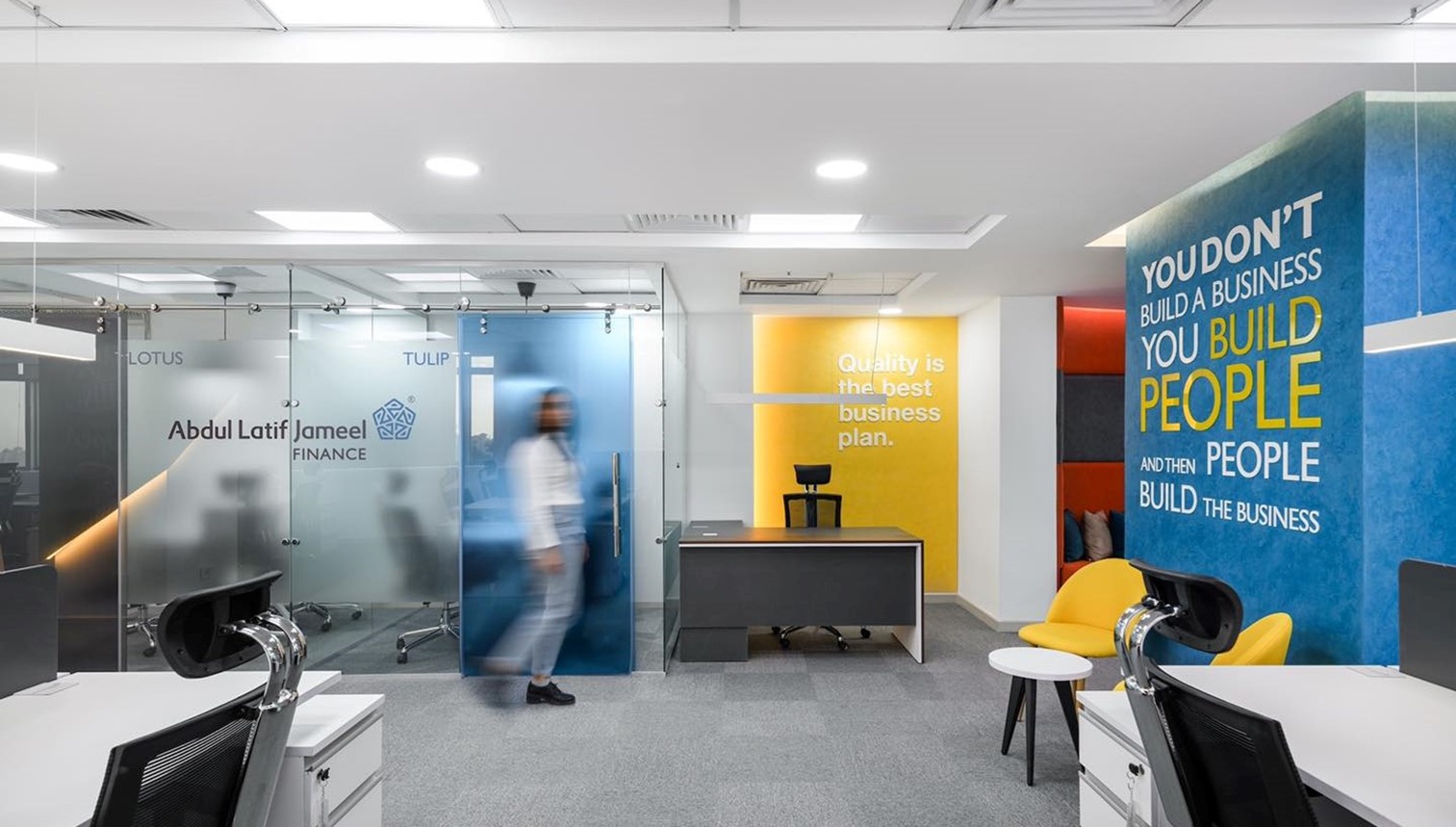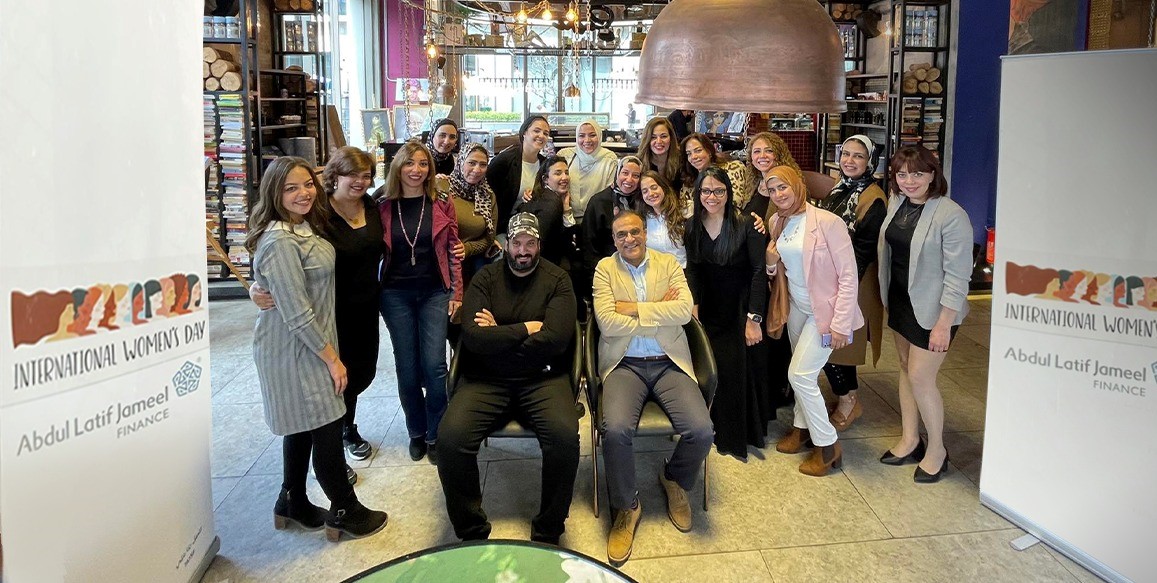Middle East: fast forward for financial services
The financial services sector in the Middle East is on the cusp of an exciting future. Traditionally perceived as bureaucratic and lacking global competitiveness, the region’s financial services markets are developing fast. ‘Digitalization’ is the new buzzword. Customer-focused and data-led, the Middle East is marching towards a new, vibrant and open, and more inclusive financial ecosystem.
With some 60% of the Middle East’s population aged 25 and under[1], the region is both young and digital-native or, at the very least, highly digital-savvy. Thanks to its digital connectivity, this new generation of consumers and entrepreneurs is increasingly plugged into the global culture and ambitious to join an international community of tech-enabled, developed economies.
Against this backdrop, a drive for individual financial empowerment is compelling banks and other financial institutions to focus on platforms as much as products[2]. Concurrently, the acceleration of fintech, with its explosion of entrepreneurial start-ups, is permitting more cross-sector partnerships to spur growth and attract new talent to the market. As an indicator of this growing potential, look no further than Tamara, a buy-now-pay-later startup serving the MENA region, which raised a record US$ 110 million in funding upon launch in 2021,[3] and tabby, which has over 1.1 million active shoppers in Saudi Arabia and the United Arab Emirates, and has raised a total of more than US$ 180 million in debt and equity, including US$ 150 million in 2021
Cutting-edge software that enables faster interactions with and between financial institutions is encouraging the speedier and more targeted movement of capital.
Large mergers are already under way as markets consolidate, see 2021’s amalgamation of Saudi Arabian retail lender NCB and smaller rival Samba, or Saudi Arabian British Bank (SABB) and Alawwal Bank.
This brave new world has the potential to revolutionize every stratum of the Middle East economy – from the family seeking a loan for a new car, to major multinationals pursuing international funding for growth.
Cryptocurrencies and central bank digital coins are rising in prominence, with fintech disruptors such as Saudi Arabia’s STC Pay and Al Rajhi Bank’s UrPay establishing market share. IBM, meanwhile, is partnering with the UAE and Saudi Arabia on Project Aber, a system of managing payments via a single regional currency and convenient app-based trading platforms such as JIMCO’s Rain driving consumer adoption.
As these tools and levers become increasingly wired into the global financial mainframe, artificial intelligence (AI) and other predictive analytic systems are enabling Middle Eastern financial markets to be more responsive to fluctuations and opportunities – real-time data for live decision making.
This wave of digitalization is set to encompass the banking, asset management and insurance sectors as part of a paradigm shift to a Banking as a Service (BaaS) ethos.
Among the regional markets at the forefront of these changes is Egypt, which is keen to seize the momentum of the rapidly evolving terrain to future-proof its own financial services market.
A new banking law was passed in September 2020, creating a comprehensive regulatory regime covering payment systems, services and fintech. It aims to encourage growth and innovation in these important areas, while also strengthening financial inclusion – a key objective of the government.
Banking reform is seen as a vital pillar of the country’s on-going economic reform program, creating a strong framework to underpin the regulation of its banking and payments industry. It also seeks to support the sector’s competitiveness on the global scene and help to achieve Egypt’s economic development and diversification objectives.
As part of its financial services modernization program, the government is also taking affirmative action to encourage innovation. In March 2022, the National Bank of Egypt, Banque du Caire and Banque Misr unveiled a joint fund, NClude, to stimulate the country’s fintech industry to the tune of US$ 85 million – a move supporting President Abdel Fattah Al-Sisi’s desire to drive growth in emerging technology fields.[4] The fund portfolio includes Lucky, an Egyptian fintech providing financial facilitation services, which has already secured a US$ 25 million commitment.
AI is seen as harboring particular potential as a catalyst of tech-driven transformation. The Information and Decision Support Center (IDSC) is aiming to ensure that AI constitutes at least 7.7% of GDP by 2030[5]. The move, part of the country’s Visions on the Road to Development strategy, will help integrate innovative technologies into the financial services sector. IDSC notes that Egypt already leads nine Arab countries in terms of digital wallets and electronic payment services.
With its ambitious plans for the financial services sector and its resilient economy, Egypt is already proving a popular destination for investment from the UAE and Gulf Cooperation Council (GCC) members. First Abu Dhabi Bank (FAB) this year offered to buy a controlling stake in EFG Hermes, Egypt’s largest investment bank, valuing the lender at US$ 1.18 billion[6]. If successful it will be FAB’s second major deal in the country in as many years, after its purchase last year of the Egyptian business of Lebanon’s Bank Audi.
With the vibrant Egyptian market poised for exponential growth, we spoke to Mohamed El Gazzar, Chief Executive Officer of Abdul Latif Jameel Finance Egypt, about developments in the country’s financial services market, the business’s progress so far, and his ambitious expansion strategy.
What are the types of services currently provided by Abdul Latif Jameel Finance Egypt?
MEG: We aim to provide innovative financing solutions that facilitate and improve the quality of people’s lives. We are proud to be part of Abdul Latif Jameel, and we leverage the group’s long heritage of global achievements that extends over 75 years, along with its deep knowledge and broad experience in the Egyptian market for more than 21 years. This ‘glocal’ formula is the lifeblood that fuels our business and ignites our power to innovate. Our core values form the foundation of our organization and drive us to Respect, Improve, Pioneer, Empower and Act with Integrity. We are also committed to a customer-centric approach that enables us to anticipate and address the growing and ever-changing needs of clients.

Leveraging the extensive experience and the strong partnerships of Abdul Latif Jameel in the mobility sector across the in MENA region, in Europe and Asia, Abdul Latif Jameel Finance Egypt provides a portfolio of auto-financing solutions for both individuals We also provide a comprehensive range of consumer finance products especially designed to meet our customers’ needs. Our financing solutions serve different purposes that help customers improve their life quality. Our range of services include insurance as well as finance for cars, travel, and education. We are proud to be a life-enabler, providing the means for the moments that matter.
How do you evaluate the company’s performance in 2021?
MEG: Last year, 2021 was a remarkable year for us. We invested in a new operating platform in line with our digital transformation strategy to provide financing solutions for all social segments in Egypt. To achieve this, we consistently create innovative financial services using advanced software and technology to simplify processes and increase customer satisfaction and financial inclusion. This was positively reflected in our sales performance, with sales up 10% on last year. We look forward to doubling this percentage and doubling the number of our customers in 2022.

Do you plan to launch different financing solutions in 2022?
MEG: Yes, we plan to double our total number of credit lines by the end of 2022. We aim to do this by leveraging the latest fintech to provide financing solutions that reach large numbers of customers throughout Egypt, especially those who lack access to financial services, driving financial inclusivity, a key component of the Jameel Family’s vision. We also provide innovative financing solutions and programs that make it easier and more convenient for customers to finance things like solar panels on houses, property refurbishment, furniture, travel and tourism, educational and health services, among other things.
Do you intend to increase the company’s equity to match the market expansion plans?
MEG: Our strategy is based on our ability to cope with market changes while maintaining solvency. Our total equity currently amounts to approximately EGP 500million (US$ 27 million), which allows us to underpin a solid market expansion strategy.
Are you aiming to increase your market share in 2022?
MEG: Yes, of course we’d like to increase our sales volumes. We are already one of the top consumer finance companies, in terms of sales, in the Egyptian market, as per the Financial Regulatory Authority (FRA) reports. We’d like to become one of the top 4 by end of 2022. To help us achieve this, we aim to double the number of customers by the end of the year.
How do you evaluate the competition between consumer finance companies and banks in providing consumer finance services?
MEG: The Egyptian market is huge, and it still has massive potential for growth. We see the expansion of the consumer finance market as a complement to the more traditional financial services provided by banks. We intend to reach customers through innovative mediums with more new-to-market products that are tailored made to address their needs. It will make it easier to reach larger customer segments and contribute to much greater financial inclusion in the country.
Automotive finance has historically been a large part of your business. How has the automotive market performed in recent years?
MEG: Car sales were negatively affected by the international crisis caused by the decline in the production of smart chips, which led to price inflation. Sales figures were also negatively affected by the impact of the pandemic. They have still not fully recovered, although we are expecting to see an improvement over the second half of 2022. The volume of used car sales is rising due to a combination of increased supply and declining interest rates.
Do you think consumer finance will help the government to achieve its objectives around greater financial inclusion?
MEG: Consumer finance is one of the main tools for implementing the country’s financial inclusion strategy and reaching larger customer segments. Consumer finance companies generally have more flexibility to engage harder-to-reach customers outside the big cities, like Cairo and Alexandria. This leads to and helps to lay the foundations for greater financial inclusion.
Are you planning to apply for any new financial licenses as part of your growth strategy?
MEG: Yes, we preparing to acquire an insurance intermediary license, as the FRA has recently opened up the market for new applications. We are exploring the introduction of high-quality insurance products that are as yet unavailable in the local market.
Our aim is to use state-of-the art technology to provide these products, while collaborating with the local insurance companies. We believe this approach will enable us to meet the increasing demands of different social segments, such as young people and tourists, in addition to providing health insurance services.
We are also planning to grow on the small and medium enterprise SME arena, as well aiming to provide unique products and services to our merchant partners.
What are the main challenges you see facing the consumer finance market in Egypt? And how can these challenges be overcome?
MEG: Financial inclusion is still a major challenge. The government’s moves to encourage growth and innovation in fintech are a positive step in this regard. They should help to support financial services companies in improving their performance and using digital technology to reach more customers, helping to increasing sales and overcome some of the current challenges. The cost of business also represents a challenge for consumer finance companies. However, there are a number of legislative changes under discussion to improve the competitiveness of consumer finance companies and facilitate further growth. I firmly believe the future looks promising for consumer finance businesses in Egypt.

[1] https://www.youthpolicy.org/mappings/regionalyouthscenes/mena/facts/#FN13
[2] https://www.talkwalker.com/blog/the-future-of-the-financial-industry-in-the-middle-east#
[3] https://www.oliverwyman.com/middle-east/media-center/2022/feb/predicted-trends-for-the-middle-east-financial-services-sector-in-2022.html
[4] https://www.ecofinagency.com/finance/2203-43476-egypt-s-public-banks-launch-85mln-funds-in-support-to-the-fintech-industry
[5] https://www.egypttoday.com/Article/3/113051/Egypt-targets-increasing-AI-contribution-to-GDP-to-7-7
[6] https://www.pressreader.com/uae/gulf-news/20220214/282136409833462





 1x
1x

 Added to press kit
Added to press kit


